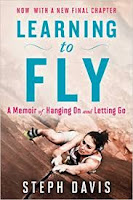 Sunil Yapa’s debut novel, Your Heart is a Muscle the Size of a Fist, is a fantastic look at the differences in how people perceive the world, and how they deal with the existence of suffering. Set in the Seattle during the World Trade Organization protest in 1999, the novel weave several different stories together beautifully. Victor is a nineteen-year-old who ran away from home and his Chief of Police father after the death of his mother. King and John Henry are protesters preaching nonviolent protest trying to stop the meetings that will establish ‘free trade’ policies across the world, arguing instead for ‘fair trade.’ A trade delegate from Sri Lanka trying to find ways to bring his war torn home into the same arena as global leaders fights to find other ways to accomplish his goals, and two street cops deal with the conflicting emotions that arise when the city they are charged to protect becomes the targets they are told to defend against. The result is a beautiful, emotional, complex novel.
Sunil Yapa’s debut novel, Your Heart is a Muscle the Size of a Fist, is a fantastic look at the differences in how people perceive the world, and how they deal with the existence of suffering. Set in the Seattle during the World Trade Organization protest in 1999, the novel weave several different stories together beautifully. Victor is a nineteen-year-old who ran away from home and his Chief of Police father after the death of his mother. King and John Henry are protesters preaching nonviolent protest trying to stop the meetings that will establish ‘free trade’ policies across the world, arguing instead for ‘fair trade.’ A trade delegate from Sri Lanka trying to find ways to bring his war torn home into the same arena as global leaders fights to find other ways to accomplish his goals, and two street cops deal with the conflicting emotions that arise when the city they are charged to protect becomes the targets they are told to defend against. The result is a beautiful, emotional, complex novel.
The story jumps rapidly between character to character, changing the point-of-view seamlessly. Yapa uses flashback, sentence structure, and dialogue extremely well so that there is never any question to whose head we are in. He couples this with complicated and intriguing histories for each character that makes their choices and interactions feel very real. They are complicated, at times contradictory, and they embody the ideologies that are at war between the protesters and the delegates. They all feel like real people that could be walking down the street on any given day, ones who may have been there on that day in 1999.
His use of language to convey emotion is masterful. He uses metaphor and description to portray how people would feel and react to traumatic events, and the effect is extremely realistic. He uses sentence structure to set the mood: short choppy sentences make time seem as if it is moving fast, longer, flowing ones accompany longer flowing thoughts as to the nature of the world and how such violence could exist.
While the story is set fifteen years ago, many of the issues that the characters grapple with feel extremely relevant. Victor is biracial and struggles with the differences between his white father's world and his own. The use of police force against the people they are policing is questioned, and the line between necessary force and brutality is blurred. There is a struggle throughout the book with the different ways people deal with and perceive suffering, between class, race, and nationality. The result was a fresh look at ideas that we are grappling with today.
Every once in awhile, a book comes along that makes you stop and think, to take a fresh look at the way we think about and discuss the struggles that we face. Yapa forces us to do this in Your Heart is a Muscle the Size of a Fist, and the result is a fantastic, exciting, thought provoking novel that feels extremely relevant, with characters whose struggles hit extremely close to home. The heart may only be a muscle the size of a fist, but, sometimes, it can swell to envelope everyone.







